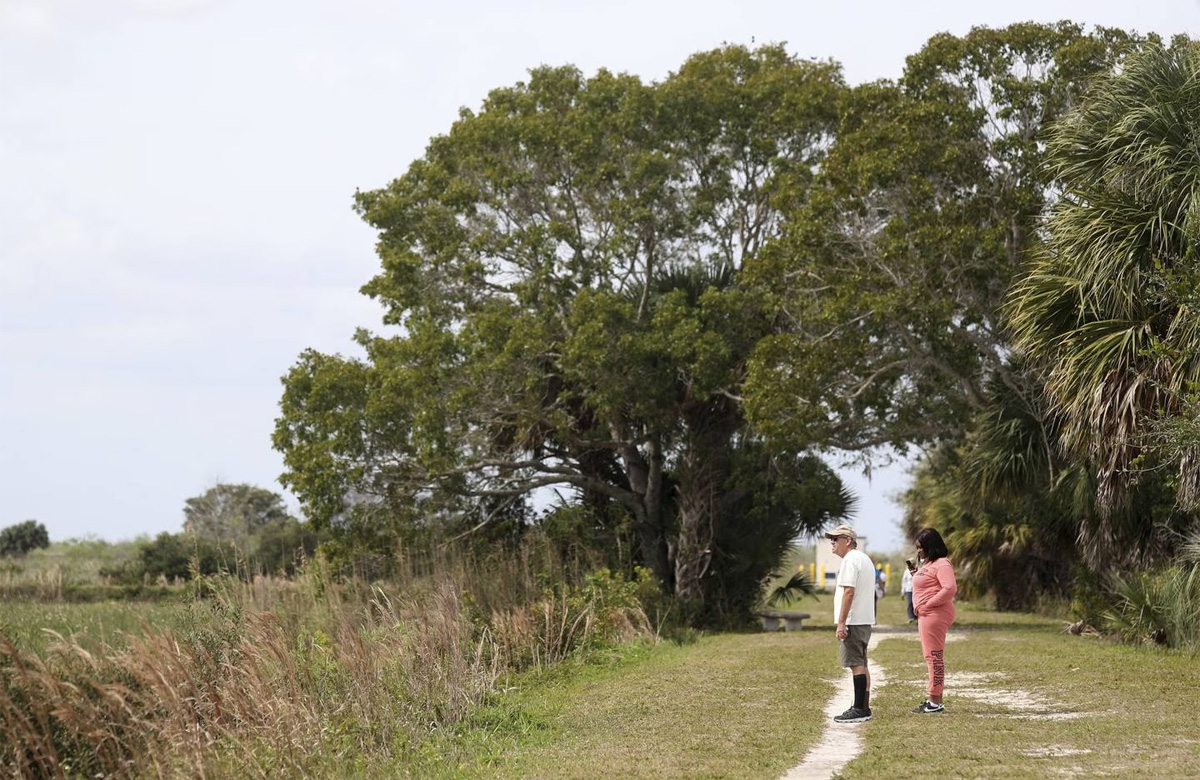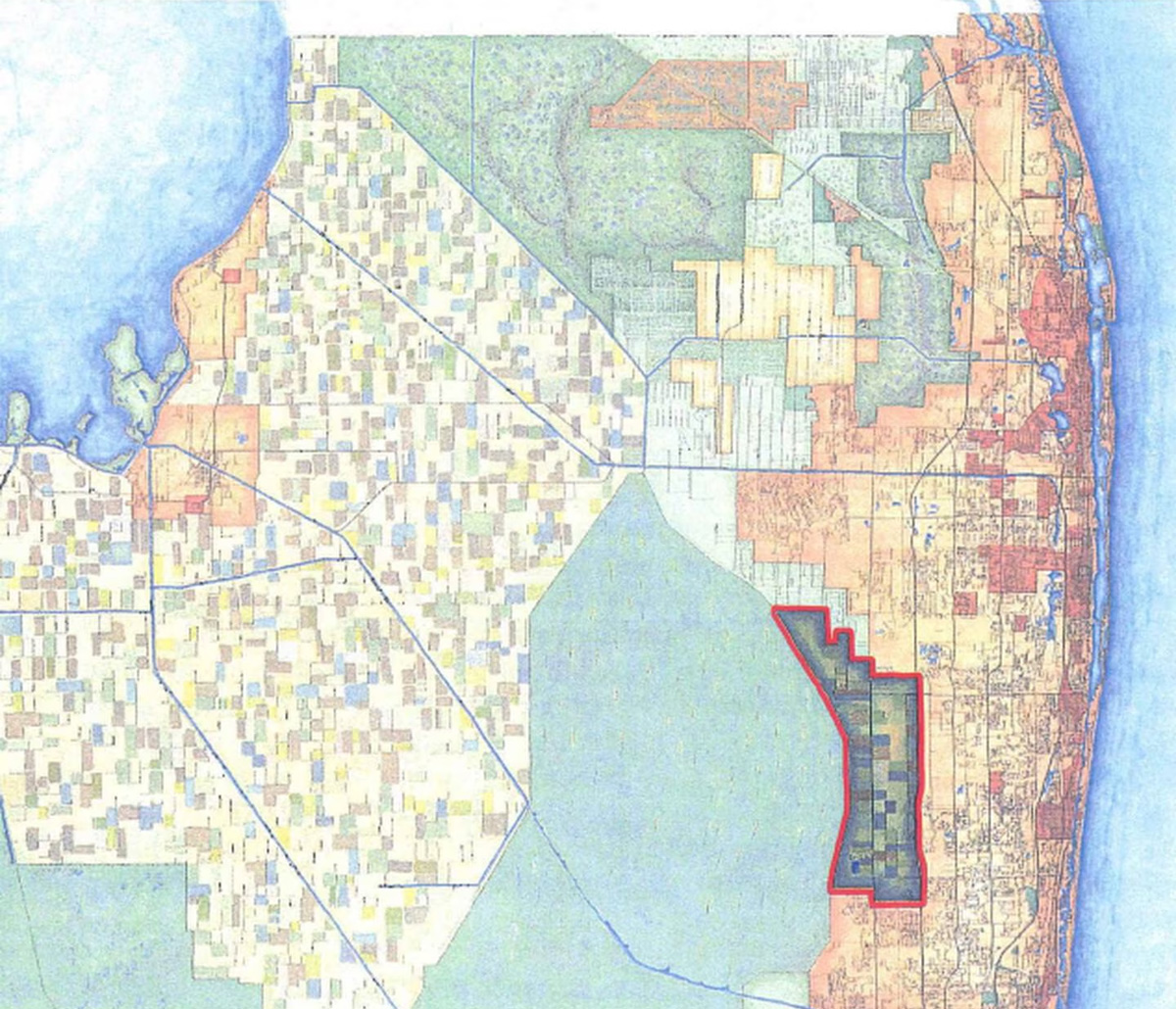New bill would make it riskier to sue to protect undeveloped lands
Floridians would be on the hook to pay when they lose lawsuits that oppose building new homes on undeveloped lands, under a newly filed bill.
Environmental groups fear that if the bill were to pass, it would deter people from filing lawsuits limiting development — and lead to greater sprawl.
“The intent of the legislation seems to be to chill people from filing these sorts of challenges,” said Gil Smart, Policy Director for the Friends of the Everglades. “These are often situations that are controversial — development is such a huge issue statewide.”
State Rep. Wyman Duggan, R-Jacksonville, recently filed the bill, which puts people on the hook financially if they lose such legal challenges to local government’s growth plans, or amendments to those plans.
Through the years, many communities across Florida have enacted protections to preserve undeveloped land and agriculture.
For example, some Florida counties, including Palm Beach County, have comprehensive plans that include agricultural reserves. If local governments were to amend their plans at the behest of a developer to allow a new big-box store or housing, and a person sues over that amendment and loses, that person must pay the county’s legal bills.
Conversely, if the resident is successful in court, the local government is responsible for the plaintiff’s legal costs.
Rep. Duggan’s office did not reply to requests for comment.
Keith Poliakoff, a land-use expert with the Government Law Group of Fort Lauderdale, represents both municipalities and those who challenge them. “Municipalities win 99% of these types of cases,” he said, “because Florida judges typically take the position that a municipality should be able to run itself and have the right to make decisions about their land-use future.”
In other words, people challenging a development would likely have to pay legal fees, he said.
“What this statutory scheme does is it prevents an aggrieved party from having their argument heard, because they’ll be fearful that they’ll be paying the municipalities’ legal fees. So this regulation is probably created by the development community to thwart appeals of land-use changes.”
Appeals delay developments until the land-use challenge is finally heard by a court, which Poliakoff says could take a year or even two after the filing. “A developer would love this bill because they would hope it would prevent someone from appealing.”
“I believe this will have a chilling effect on individuals being able to challenge perceived wrongs that they would like a secondary party to review. It will thwart challenges where a municipality may be overzealous in an action it’s taking. It basically gives a municipality the green light to make changes to its comp plan without fear that they’ll be challenged.”
“I have two or three orders going on right now that if this [legislation] was passed, it would have made my clients think twice about challenging a municipality’s actions.”
The newly filed bill comes as housing is in sharp demand. Broward, Palm Beach and Miami-Dade counties are all facing housing shortages, and all have different lingo for the open land within their comprehensive plans, their guides for growth and land preservation.

Visitors walk along the Marsh Trail at the Arthur R. Marshall Loxahatchee National Wildlife Refuge. The trail abuts Palm Beach County’s Agricultural Reserve, a nearly 21,000-acre area that the county says is meant to preserve unique farmland and wetlands. (Susan Stocker / South Florida Sun Sentinel)
In 1999, Palm Beach County voters created a nearly 21,000-acre Agricultural Reserve between the turnpike and the Loxahatchee National Wildlife Refuge.
The county’s website says that the purpose of the reserve is to “preserve unique farmland and wetlands” to enhance agriculture, environmental and water resources, and open space, by limiting the use to agriculture, conservation and low-density residential development.
Some developments within the reserve have involved land swaps. One such development proposal by GL Homes looks to expand from an approved 277 homes to 704 homes — the Palm Beach County commission will revisit the issue in May.
In order to build the homes, the county would need to approve a land swap in which GL Homes trades 1,600 acres in Loxahatchee to the county for the rights to build in the Agricultural Reserve.
Broward County does not have an agricultural reserve, but does have a thin band of agricultural land in the southwest corner.

Palm Beach County’s Agricultural Reserve, in red, was established in 1999, and maintains open space and farmland adjacent to wilderness and Everglades water treatment areas. A proposed bill would make it more financially risky for citizens to sue to stop development in lands such as the Agricultural Reserve. (Palm Beach County/SFWMD)
Miami-Dade County recently experienced controversy over an industrial complex slated to go up on farmland beyond the county’s Urban Development Boundary.
The County Commission approved the project, despite the fact that the land had been targeted for Everglades restoration. Last Thursday, the Miami Herald reported that Florida’s Department of Economic Opportunity notified the county that it had fouled up the approval process, and that a re-vote — with a new commission — might be needed.
“There’s a lot of pressure on communities in Florida, and comprehensive plans are out there to help guide growth,” Smart said. “But when you change the plans at the behest of developers, people are going to have a problem with that. Our view is that they should be able to engage in the process without retribution.”
Environmental groups see the new bill as an extension of a 2019 bill, which established that if people sue to stop a development order and lose, they must pay the prevailing party’s court costs.
“Our concern is that this sort of thing is going to enable more sprawl, and more haphazard development, which is going to impact water and the environment in general,” Smart said. “In places like Miami-Dade County … it could have an impact on the footprint of Everglades restoration.”
The bill would have to go through three committees before going to a vote during the March legislative session, Smart said. A companion Senate bill has not yet been filed.
Article Link: New bill would make it riskier to sue to protect undeveloped lands
Auther: Bill Kearney
